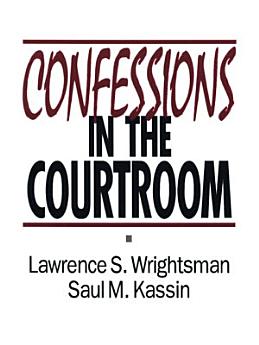Confessions in the Courtroom
ഈ ഇ-ബുക്കിനെക്കുറിച്ച്
രചയിതാവിനെ കുറിച്ച്
Saul Kassin is a Distinguished Professor of Psychology at John Jay College of Criminal Justice and Massachusetts Professor Emeritus at Williams College. Born and raised in New York City, he graduated from Brooklyn College in 1974. After receiving his PhD from the University of Connecticut in 1978, he spent time at the University of Kansas, Purdue University, the Federal Judicial Center, and Stanford University. He is an author or editor of several books—including Psychology, Developmental Social Psychology, The American Jury on Trial, Duped: Why Innocent People Confess – and Why We Believe Their Confessions, and most recently, The Pillars of Social Psychology. Interested in the psychology of wrongful convictions, Kassin pioneered the scientific study of false confessions for which he has received several awards—including the APA Award for Distinguished Contribution to Research on Public Policy and the APS James McKeen Cattell Lifetime Achievement Award for Applied Research. He has consulted on many high-profile cases, served as an analyst on all major news networks, and appeared in several podcasts and documentaries—including Ken Burns’s 2012 film, The Central Park Five.








